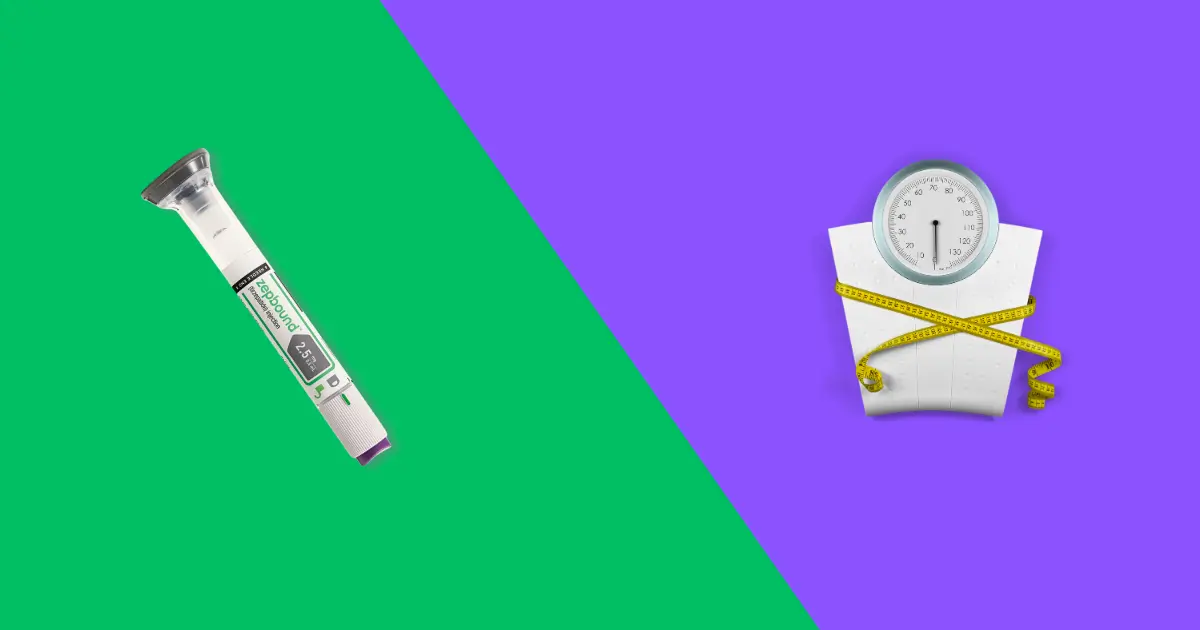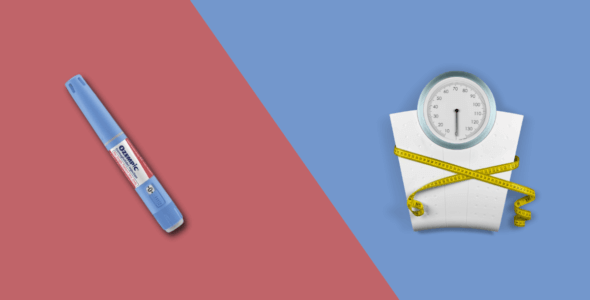How to pay $25 using the Zepbound Savings Card: The Ultimate Guide
Key highlights
- The Zepbound Savings Card is intended for commercially insured patients without any government insurance (eg. Medicare, Medicaid, etc).
- Commercially insured patients with insurance coverage for Zepbound may pay as low as $25 for a 1-month or 3-month supply of Zepbound with certain limitations.
- Commercially insured patients without insurance coverage for Zepbound may pay as low as $525 for a 1-month supply of Zepbound with certain limitations.
- If ineligible for the savings card, there are other options to save money on this medication.
Table of contents
Zepbound (tirzepatide) is a prescription medication approved by the Food and Drug Administration (FDA) along with diet and exercise for weight loss and chronic weight management in adults with obesity or overweight with at least one other weight-related medical condition.
Obesity and overweight are serious medical conditions that affect millions of Americans and can be associated with some of the common causes of death such as diabetes, stroke, and heart disease.
The average retail list price for this medication is $1,050 per month without insurance coverage. With the Zepbound Savings Card program, eligible patients can pay as little as $25 for their prescription. Understanding the eligibility criteria and the application process is essential for taking advantage of these potential savings. However, not all patients, including those with government insurance, qualify for the savings card.
Who is eligible to get Zepbound for $25?
The Eli Lilly Zepbound Savings Card program is intended to significantly reduce the out-of-pocket costs for eligible patients with commercial drug insurance coverage.
Call your insurance company (the phone number on the back of your insurance card) or visit their website to find out if your commercial insurance plan covers Zepbound and ask them the following questions:
- Does my insurance plan cover Zepbound?
- If Zepbound is covered, how much will I pay? This will depend on your drug plan’s copay.
- Does my doctor need to submit a prior authorization (PA) form?
- What is my deductible (the out-of-pocket cost I need to pay before my insurance starts paying)?
- Which pharmacies can I obtain the medication from?
Should your insurance provider deny coverage for this medication, appeal procedures are often available. Ask your insurance company about the appeal process. It may involve submitting additional documentation such as a letter of medical necessity for using Zepbound.
Commercial insurance with insurance coverage for Zepbound
Commercially insured patients with insurance coverage for Zepbound may pay as low as $25 for a 1-month or 3-month supply of Zepbound with the following limitations:
- Maximum monthly savings of up to $150 for a 1-month prescription
- Maximum monthly savings of up to $300 for a 2-month prescription
- Maximum monthly savings of up to $450 for a 3-month prescription
- Maximum annual savings of up to $1,800 per calendar year
- Prescription can be filled up to 13 times per calendar year
Commercial insurance without insurance coverage for Zepbound
Commercially insured patients without insurance coverage for Zepbound may pay as low as $525 for a 1-month supply of Zepbound with the following limitations.
- Maximum monthly savings of up to $563 for a 1-month prescription
- Maximum annual savings of up to $7,319 per calendar year
- Prescription can be filled up to 13 times per calendar year
Terms and conditions
- You have a prescription from a licensed U.S. prescriber according to the FDA-approved product labeling
- You are enrolled in a commercial drug insurance plan without coverage for Zepbound
- You are not enrolled in government insurance plans such as Medicare, Medicaid, Medicare Part D, Medicare Advantage, Medigap, VA, DoD, TRICARE/CHAMPUS, or any state drug assistance program
- You are a legal resident of the United States or Puerto Rico
- You are at least 18 years of age.
Once approved for the savings card, inform the pharmacist of your Savings Card when purchasing the medication. If eligible, the card’s benefits should be applied immediately, providing you with instant savings on the medication.
For those ineligible, exploring other financial assistance programs, alternative medications, or generic options, can potentially help you save money.
Who is not eligible for the Zepbound Savings Card
The Zepbound Savings Card is not available to:
- Individuals with government insurance: including Medicare, Medicaid, Medicare Part D, Medicare Advantage, Medigap, VA, DoD, TRICARE/CHAMPUS, or any state drug assistance program.
- Individuals without commercial drug insurance coverage
- Individuals residing in California or Massachusetts: due to state restrictions, this medication is not available to residents of California and Massachusetts.
- Individuals who are not residents of the United States or Puerto Rico
- Individuals without a valid prescription for an FDA-approved product labeling of Zepbound
- Individuals with an insurance plan that participates in an alternate funding program (“AFP”), for example, ImpaxRx, SHARx, Script Sourcing, etc. Eli Lilly may change the eligibility requirements and terms and conditions at any time, so it is advisable to check their website for the latest information.
Steps to access the Zepbound Savings Card
If you believe that you are eligible for the savings card, you can follow these steps:
- Go to the Zepbound Savings Card website
- Choose the type of health insurance plan you have
- Verify that you are eligible
- Download your savings card
- Go to a participating pharmacy with the Savings Card. Generally, Eli Lilly medicines are available from neighborhood pharmacies such as CVS, Walgreens, and specialty pharmacies.
If you encounter any issues or have questions during the application process, customer service representatives can assist and provide further guidance.
Alternative savings options
Even without the Zepbound Savings Card, there are other medication options to explore that may help reduce the cost of your weight loss drug.
Compounded tirzepatide for weight loss
Compounded tirzepatide has the same active ingredient as the brand-name prescription drug, Zepbound. Buy compounded tirzepatide by signing up for a NiceRx Weight Loss Program membership. A licensed provider will determine if this prescription drug is appropriate for you.
Alternative medications for weight loss
There are several alternative GLP-1 medications to consider. Speak with your healthcare professional to determine if any of these alternative options are appropriate for you:
- Saxenda (liraglutide)
- Wegovy (semaglutide) – same active ingredient as Ozempic
- Mounjaro (tirzepatide)
Explore coverage for other insurance types
If you have government insurance that makes you ineligible for the Zepbound Savings Card, there may be other options for you to consider, depending on your insurance type.
I am enrolled in Medicaid
Coverage through Medicaid depends on the state you live in. Check your state’s Medicaid Preferred Drug List (PDL) to find out if Zepbound is covered.
I am enrolled in Medicare
Most Medicare plans do not cover anti-obesity medications such as Zepbound, except for some Medigap and Medicare Advantage plans. Contact your Medicare insurance provider’s customer service to check if Zepbound is covered.
I am enrolled in Veterans Affairs
Veterans Affairs may cover anti-obesity medications including Zepbound. Speak with your local Veterans Affairs provider to verify your coverage and options.
I am enrolled in government employee benefits
Speak with your insurance company if you are a city, state, federal municipality, or federal department government employee to determine your coverage options.
I am enrolled in TRICARE®
TRICARE® insurance may cover Zepbound and your healthcare provider can request a coverage review, which is the process that TRICARE® uses to determine if it will approve coverage. Speak with your TRICARE® provider or Military Treatment Facility regarding your options and coverage.
Prescription discount cards
Medication prices vary by pharmacy and you may find additional savings by using pharmacy comparison tools such as GoodRx or SingleCare which offer additional savings with prescription discount cards.
Common questions about Zepbound
Here are answers to some of the most common questions about Zepbound.
What is Zepbound?
Zepbound contains the active ingredient tirzepatide. It is an injectable prescription anti-obesity medication that is used for weight loss and should be used with a low-calorie diet and increased physical activity.
According to the manufacturer’s website, people taking Zepbound lost up to 48 lbs as evidenced in a 17-month clinical trial, with people who dieted, exercised and took the medication.
The Food and Drug Administration (FDA) has approved Zepbound along with diet and exercise for weight loss and weight management in adults with:
- a BMI (body mass index) of 30 or more, or;
- a BMI of 27 or more in addition to at least one weight-related condition, such as high cholesterol, high blood pressure, or type 2 diabetes
Who should not take Zepbound?
The manufacturer warns that Zepbound can cause tumors in the thyroid which includes thyroid cancer.
It is important to monitor possible symptoms while taking the medication. For example, a swelling or lump in the neck, shortness of breath, trouble swallowing, or hoarseness.
If you experience any of these symptoms while taking the medication, speak to your healthcare professional immediately.
- Do not use this medication if you or any of your family have ever had a thyroid cancer that is called medullary thyroid carcinoma (MTC).
- Do not use this medication if you have Multiple Endocrine Neoplasia syndrome type 2 (MEN 2).
- Do not use this medication if you have had a serious allergic reaction to this medication or any of the ingredients in this medication
What are Zepbound side effects?
Zepbound may cause serious side effects such as:
- severe stomach problems
- kidney problems (kidney failure)
- inflammation of the pancreas (pancreatitis)
- gallbladder problems
- changes in vision in patients with diabetes type 2
- low blood sugar (hypoglycemia)
- depression
- thoughts of suicide
Common side effects of this medication may include:
- nausea
- diarrhea
- vomiting
- stomach (abdominal) pain
- constipation
- indigestion
- feeling tired
- injection site reactions
- belching
- allergic reactions
- heartburn
- hair loss
If you experience any side effects or adverse reactions while using this medication, seek immediate medical advice from your healthcare provider.
What can I do if the Zepbound Savings Card is not working?
If your Zepbound Savings Card is not working:
- look for instructions on the card or the paperwork that came with it
- if online activation is available, visit the card activation website
- follow the prompts
Alternatively, you can call the phone number listed on the card or the accompanying materials that you received with the savings card.
How much is Zepbound with the savings card?
The cost of Zepbound varies depending on your commercial insurance coverage and whether it covers Zepbound. If your commercial insurance covers Zepbound, you can pay as little as $25. If your commercial insurance does not cover Zepbound, you can pay as little as $525. Find out from your commercial insurance company if they cover this medication.
Is Zepbound covered by Medicare?
Most Medicare plans do not cover anti-obesity medications. However, some Medigap and Medicare Advantage plans cover anti-obesity medications such as Zepbound. Contact your Medicare insurance provider’s customer service to determine if Zepbound is covered.
The bottom line
Zepbound (tirzepatide) is an expensive drug without adequate insurance coverage. Fortunately, Eli Lilly offers eligible commercially insured patients effective options to reduce out-of-pocket expenses when using the Zepbound Savings Card. Savings cards and discount cards are effective ways to save money on expensive medications.
Even if you are ineligible for the Zepbound Savings Card, there are several other options to save money on your weight loss medication, including the compounded version of Zepbound that is available through the NiceRx Weight Loss Program.
Medically reviewed
A medical professional has reviewed this article.


Matt Sommers, PharmD
Matt Sommers, PharmD
Dr. Matt Sommers received his Doctor of Pharmacy in 2002 from the University of Iowa College of Pharmacy. Matt is a medical reviewer for NiceRx.




